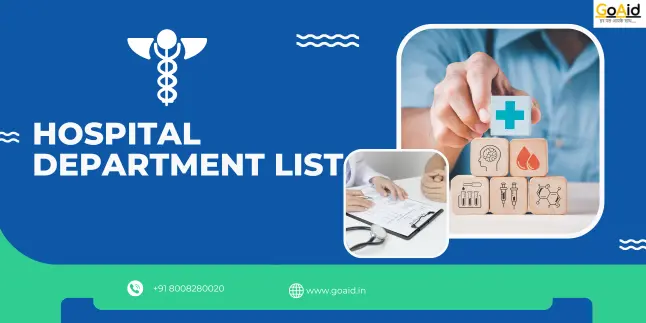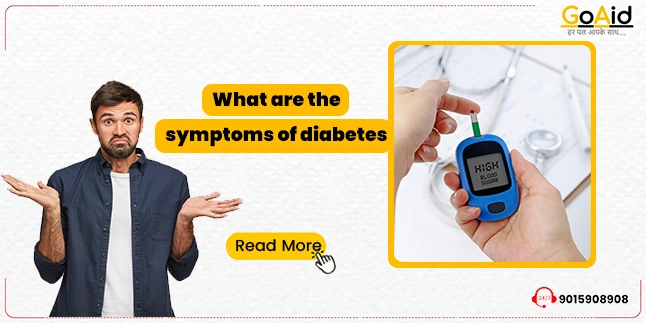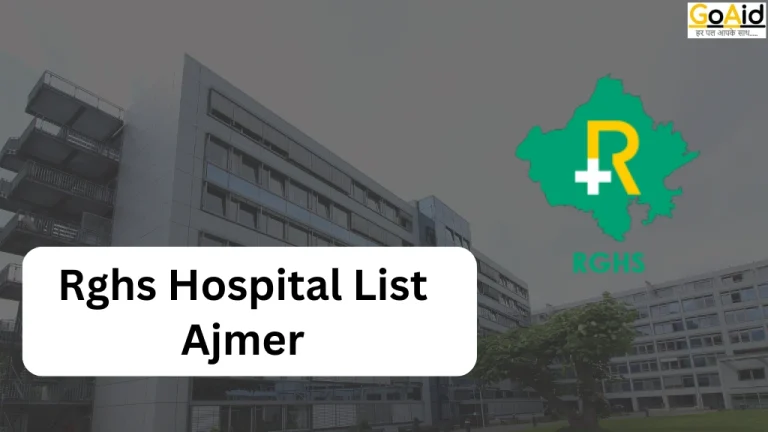Whenever a normal person, who doesnŌĆÖt have much knowledge about hospitals, their work, and their departments, goes for treatment in any hospital, they always get confused with the Different types of Hospital Departments. What do you think? Is it that hard to understand what the hospital department is? Are there too many hospital departments? Tons of people tirelessly look for details about the hospital department’s list.
If you are also the one who wants to know the full details of the hospital department or hospital department list, then we have added comprehensive details about the hospital department list to this blog. This blog will answer all your queries about hospital departments listed in India.
So, letŌĆÖs start:
What is a Hospital Department?
A hospital department is a specialized unit within a healthcare facility dedicated to providing focused medical care and services. Each department is equipped with specific resources, staff, and technology to address particular health needs.
These units are organized to cater to patient care, enhance treatment efficacy, and ensure efficient operation within the hospital. Departments often include a range of professionals such as doctors, nurses, technicians, and support staff, all working collaboratively.
The structure of hospital departments allows for a multidisciplinary approach to patient care, ensuring that individuals receive comprehensive and specialized medical attention tailored to their specific conditions and needs.
Read More: Introduction to Standard Protocols for Paramedics to Follow
Different Types of Hospital Departments
These are the all major types of Hospital Departments list that you can find in any hospital that tries to cover all major health issues and body problems:
| SN | Hospital Department Name | Specialized duties |
| 1 | Emergency Department (ED) | Immediate care for acute illnesses and injuries |
| 2 | Cardiology | Diagnosis and treatment of heart and vascular conditions |
| 3 | Neurology | Care for brain, spinal cord, and nervous system disorders |
| 4 | Pediatrics | Medical care for infants, children, and adolescents |
| 5 | Obstetrics and Gynecology | Women’s reproductive health and childbirth |
| 6 | Oncology | Diagnosis and treatment of cancer |
| 7 | Orthopedics | Treatment of musculoskeletal system issues |
| 8 | Radiology | Imaging services for diagnosis and treatment |
| 9 | Pathology | Laboratory analysis of body tissues and fluids |
| 10 | General Surgery | Surgical procedures for a wide range of conditions |
| 11 | Urology | Treatment of urinary and male reproductive systems |
| 12 | Dermatology | Care for skin, hair, and nail conditions |
| 13 | Gastroenterology | Treatment of digestive system disorders |
| 14 | Nephrology | Care for kidney-related conditions |
| 15 | Pulmonology | Treatment of lung and respiratory tract disorders |
| 16 | Psychiatry | Mental health care and treatment |
| 17 | Endocrinology | Treatment of hormonal and metabolic disorders |
| 18 | Rheumatology | Care for autoimmune and inflammatory diseases |
| 19 | Anesthesiology | Pain management and anesthesia for surgeries |
| 20 | Intensive Care Unit (ICU) | Critical care for severely ill or injured patients |
| 21 | Infectious Diseases | Treatment of infections and contagious diseases |
| 22 | Ophthalmology | Eye care and vision services |
| 23 | ENT (Otorhinolaryngology) | Care for ear, nose, and throat conditions |
| 24 | Hematology | Treatment of blood disorders |
| 25 | Physical Medicine and Rehab | Rehabilitation and physical therapy services |
Complete Details about the Hospital Departments
This is the complete detail about All Major Hospital Departments listed in the above list:
1. Emergency Department
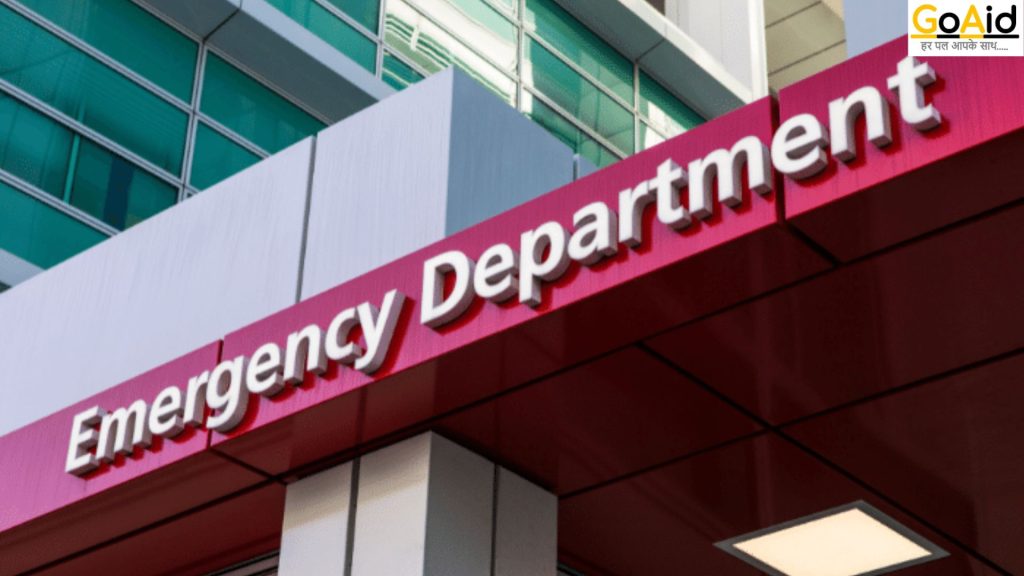
Brief Description of this Hospital Department
The Emergency Department (ED) provides immediate medical attention for acute illnesses, injuries, and life-threatening conditions. It operates 24/7, equipped to handle a wide range of emergencies with specialized staff and resources.
Issues Covered Under this Hospital Department
These are the major issues covered under this or similar kinds of Hospital Departments:
- Heart attacks
- Strokes
- Severe injuries
- Respiratory distress
- Acute infections
- Trauma
Specified Doctors Under this Hospital Department
The names of the Specified Doctors under this or similar kinds of Hospital Departments are based on their duties and specified work. These are the possible names of the doctors in this hospital department:
- Emergency Physicians
- Trauma Surgeons
- Critical Care Specialists
- Anesthesiologists
- Cardiologists
Functions of the Emergency Department of the Hospital
These are the key functions of this or similar kinds of hospital departments:
- Provide immediate medical care for acute illnesses and injuries.
- Stabilize patients with life-threatening conditions.
- Perform rapid diagnostic assessments and imaging.
- Administer emergency medications and treatments.
- Coordinate with other departments for specialized care.
- Manage trauma and resuscitation efforts.
- Facilitate patient transfers to appropriate care units.
- Provide emergency mental health services.
Benefits to the Patients under this Hospital Department
These are the key benefits that you can get under this hospital Department:
- Immediate care
- Life-saving interventions
- Rapid diagnosis
- Pain management
- Stabilization of conditions
- Coordination of further treatment
2. Cardiology

Brief Description of this Hospital Department
The Cardiology Department specializes in the diagnosis and treatment of heart and vascular conditions. It includes non-invasive and invasive procedures to manage cardiovascular diseases.
Issues Covered Under this Hospital Department
These are the major issues covered under this or similar kinds of Hospital Departments:
- Coronary artery disease
- Heart failure
- Arrhythmias
- Hypertension
- Valve disorders
Specified Doctors Under this Hospital Department
The names of the Specified Doctors under this or similar kinds of Hospital Departments are based on their duties and specified work. These are the possible names of the doctors in this hospital department:
- Cardiologists
- Interventional Cardiologists
- Electrophysiologists
- Cardiothoracic Surgeons
- Vascular Surgeons
Functions of the Cardiology Department of the Hospital
These are the key functions of this or similar kinds of hospital departments:
- Diagnose and treat cardiovascular diseases.
- Perform non-invasive and invasive cardiac procedures.
- Monitor and manage chronic heart conditions.
- Conduct heart-related diagnostic tests (e.g., EKG, stress tests).
- Provide interventional cardiology services (e.g., angioplasty).
- Offer cardiac rehabilitation programs.
- Conduct research and clinical trials in cardiology.
- Educate patients on heart health and preventive measures.
Benefits to the Patients under this Hospital Department
These are the key benefits that you can get under this hospital Department:
- Specialized heart care
- Advanced diagnostic testing
- Preventive cardiology
- Interventional procedures
- Surgical options
- Chronic disease management
3. Neurology
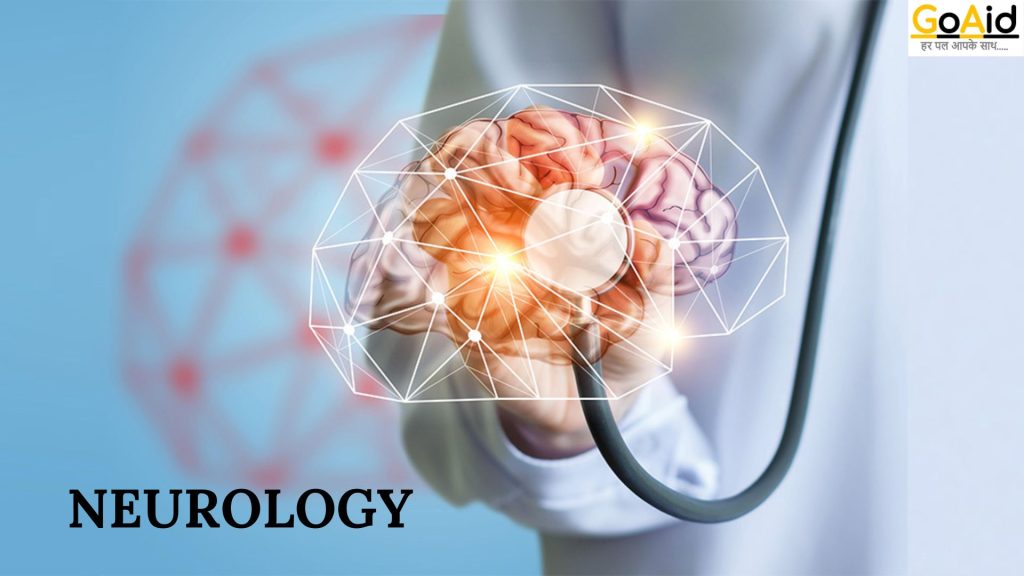
Brief Description of this Hospital Department
The Neurology department deals with disorders of the brain, spinal cord, and nervous system. It offers both diagnostic and therapeutic services for a variety of neurological conditions.
Issues Covered Under this Hospital Department
These are the major issues covered under this or similar kinds of Hospital Departments:
- Stroke
- Epilepsy
- Multiple sclerosis
- Parkinson’s disease
- Migraines
Specified Doctors Under this Hospital Department
The names of the Specified Doctors under this or similar kinds of Hospital Departments are based on their duties and specified work. These are the possible names of the doctors in this hospital department:
- Neurologists
- Neurosurgeons
- Neurophysiologists
- Pediatric Neurologists
- Neuro-oncologists
Functions of the Neurology Department of the Hospital
These are the key functions of this or similar kinds of hospital departments:
- Diagnose and treat neurological disorders.
- Conduct neurological examinations and diagnostic tests.
- Provide medical management for chronic neurological conditions.
- Perform neurosurgical interventions.
- Offer rehabilitation services for neurological impairments.
- Manage stroke and its complications.
- Conduct clinical research in neurology.
- Educate patients and families about neurological health.
Benefits to the Patients under this Hospital Department
These are the key benefits that you can get under this hospital Department:
- Comprehensive neurological care
- Advanced imaging and diagnostics
- Surgical and non-surgical treatments
- Rehabilitation services
- Multidisciplinary approach
- Long-term management of chronic conditions
4. Pediatrics

Brief Description of this Hospital Department
Pediatrics focuses on the health and medical care of infants, children, and adolescents. It encompasses preventive care, diagnosis, and treatment of acute and chronic illnesses.
Issues Covered Under this Hospital Department
These are the major issues covered under this or similar kinds of Hospital Departments:
- Immunizations
- Common infections
- Growth and development issues
- Asthma
- Pediatric diabetes
Specified Doctors Under this Hospital Department:
The names of the Specified Doctors under this or similar kinds of Hospital Departments are based on their duties and specified work. These are the possible names of the doctors in this hospital department:
- Pediatricians
- Pediatric Surgeons
- Pediatric Cardiologists
- Pediatric Endocrinologists
- Pediatric Neurologists
Functions of the Pediatrics Department of the Hospital
These are the key functions of this or similar kinds of hospital departments:
- Provide preventive health care for children (e.g., immunizations).
- Diagnose and treat pediatric illnesses.
- Monitor growth and developmental milestones.
- Manage chronic pediatric conditions (e.g., asthma, diabetes).
- Offer pediatric emergency care.
- Provide family-centered care and counseling.
- Conduct health education for children and parents.
- Collaborate with schools and community services for child health.
Benefits to the Patients under this Hospital Department
These are the key benefits that you can get under this hospital Department:
- Age-specific medical care
- Preventive health services
- Early detection of diseases
- Family-centered care
- Management of chronic pediatric conditions
- Support for developmental issues
5. Obstetrics and Gynecology

Brief Description of this Hospital Department:
Obstetrics and Gynecology (OB/GYN) focuses on women’s reproductive health, pregnancy, and childbirth. It provides comprehensive care from preventive services to surgical interventions.
Issues Covered Under this Hospital Department
These are the major issues covered under this or their kinds of Hospital Departments:
- Pregnancy and childbirth
- Menstrual disorders
- Infertility
- Pelvic floor disorders
- Gynecologic cancers
Specified Doctors Under this Hospital Department
The names of the Specified Doctors under this or similar kinds of Hospital Departments are based on their duties and specified work. These are the possible names of the doctors in this hospital department:
- Obstetricians
- Gynecologists
- Maternal-Fetal Medicine Specialists
- Reproductive Endocrinologists
- Gynecologic Oncologists
Functions of Obstetrics and Gynecology Department of Hospital
These are the key functions of this or similar kinds of hospital departments:
- Provide prenatal and postnatal care.
- Manage pregnancy and childbirth, including high-risk pregnancies.
- Diagnose and treat gynecological conditions.
- Perform gynecological surgeries and procedures.
- Offer fertility and reproductive health services.
- Conduct cancer screenings and treatments.
- Provide menopausal care and hormone therapy.
- Educate women on reproductive and sexual health.
Benefits to the Patients under this Hospital Department
These are the key benefits that you can get under this hospital Department:
- Prenatal and postnatal care
- Advanced fertility treatments
- Minimally invasive surgeries
- Cancer screening and treatment
- Menopausal care
- Comprehensive reproductive health services
6. Oncology

Brief Description of this Hospital Department
The Oncology department specializes in the diagnosis and treatment of cancer. It uses a multidisciplinary approach to provide comprehensive care, including chemotherapy, radiation, and surgical interventions.
Issues Covered Under this Hospital Department
These are the major issues covered under this or similar kinds of Hospital Departments:
- Breast cancer
- Lung cancer
- Colon cancer
- Leukemia
- Lymphoma
Specified Doctors Under this Hospital Department
The names of the Specified Doctors under this or similar kinds of Hospital Departments are based on their duties and specified work. These are the possible names of the doctors in this hospital department:
- Medical Oncologists
- Radiation Oncologists
- Surgical Oncologists
- Hematologists
- Pediatric Oncologists
Functions of the Oncology Department of the Hospital
These are the key functions of this or similar kinds of hospital departments:
- Diagnose and treat various types of cancer.
- Develop and administer personalized cancer treatment plans.
- Provide chemotherapy, radiation therapy, and immunotherapy.
- Perform surgical oncology procedures.
- Conduct cancer screenings and early detection programs.
- Offer palliative and supportive care services.
- Facilitate access to clinical trials and research.
- Educate patients and families about cancer prevention and care.
Benefits to the Patients under this Hospital Department
These are the key benefits that you can get under this hospital Department:
- Personalized cancer treatment plans
- Access to clinical trials
- Multimodal therapy options
- Supportive care services
- Palliative care
- Long-term follow-up care
7. Orthopedics

Brief Description of this Hospital Department
Orthopedics focuses on the diagnosis, treatment, and prevention of musculoskeletal system issues. It includes surgical and non-surgical treatments for bones, joints, ligaments, tendons, and muscles.
Issues Covered Under this Hospital Department
These are the major issues covered under this or similar kinds of Hospital Departments:
- Fractures
- Arthritis
- Sports injuries
- Spinal disorders
- Joint replacements
Specified Doctors Under this Hospital Department
The names of the Specified Doctors under this or similar kinds of Hospital Departments are based on their duties and specified work. These are the possible names of the doctors in this hospital department:
- Orthopedic Surgeons
- Sports Medicine Specialists
- Rheumatologists
- Physical Therapists
- Orthopedic Oncologists
Functions of Orthopedics Department of Hospital
These are the key functions of this or similar kinds of hospital departments:
- Diagnose and treat musculoskeletal disorders.
- Perform orthopedic surgeries (e.g., joint replacements).
- Manage fractures and traumatic injuries.
- Provide rehabilitation services for musculoskeletal conditions.
- Offer sports medicine and injury prevention programs.
- Conduct bone density testing and osteoporosis management.
- Develop personalized treatment plans for chronic conditions.
- Educate patients on maintaining musculoskeletal health.
Benefits to the Patients under this Hospital Department
These are the key benefits that you can get under this hospital Department:
- Advanced surgical techniques
- Pain management
- Rehabilitation services
- Customized treatment plans
- Preventive care
- Enhanced mobility and function
8. Radiology
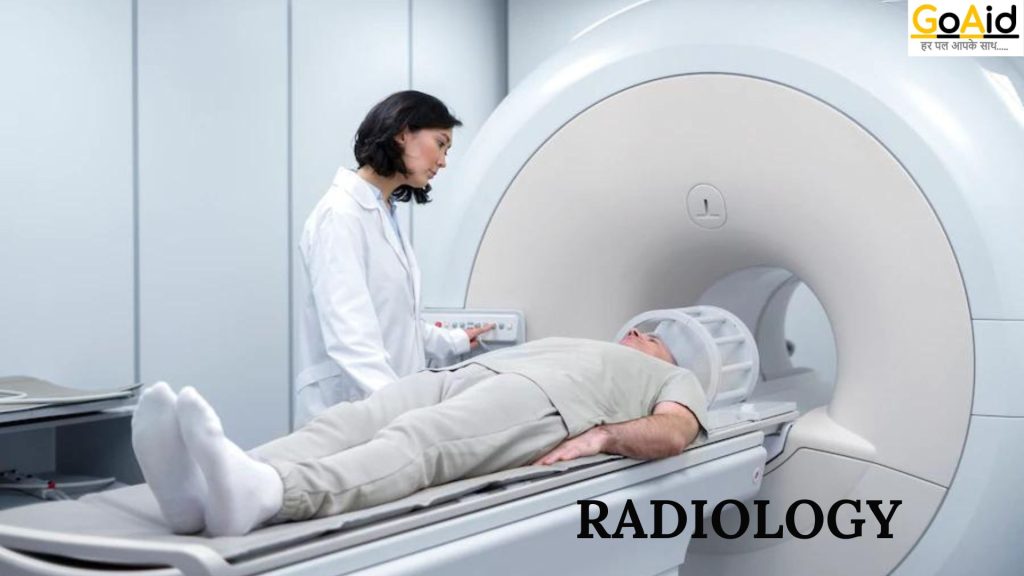
Brief Description of this Hospital Department
Radiology provides imaging services to diagnose and treat various medical conditions. It uses advanced technology like X-rays, MRI, CT scans, and ultrasound to visualize internal body structures.
Issues Covered Under this Hospital Department
These are the major issues covered under this or similar kinds of Hospital Departments:
- Bone fractures
- Tumors
- Internal bleeding
- Brain disorders
- Abdominal conditions
Specified Doctors Under this Hospital Department
The names of the Specified Doctors under this or similar kinds of Hospital Departments are based on their duties and specified work. These are the possible names of the doctors in this hospital department:
- Radiologists
- Interventional Radiologists
- Neuroradiologists
- Pediatric Radiologists
- Nuclear Medicine Physicians
Functions of the Radiology Department of the Hospital
These are the key functions of this or similar kinds of hospital departments:
- Perform diagnostic imaging procedures (e.g., X-rays, MRI, CT scans).
- Conduct interventional radiology procedures.
- Interpret imaging results for accurate diagnosis.
- Support other departments with imaging services.
- Provide radiation therapy for cancer treatment.
- Offer breast screening and mammography services.
- Conduct image-guided biopsies and treatments.
- Ensure patient safety and minimal radiation exposure.
Benefits to the Patients under this Hospital Department
These are the key benefits that you can get under this hospital Department:
- Accurate diagnosis
- Non-invasive imaging techniques
- Image-guided procedures
- Early detection of diseases
- Real-time monitoring
- Comprehensive imaging services
Also Read: Top 10 Private Cancer Hospitals in Delhi
9. Pathology
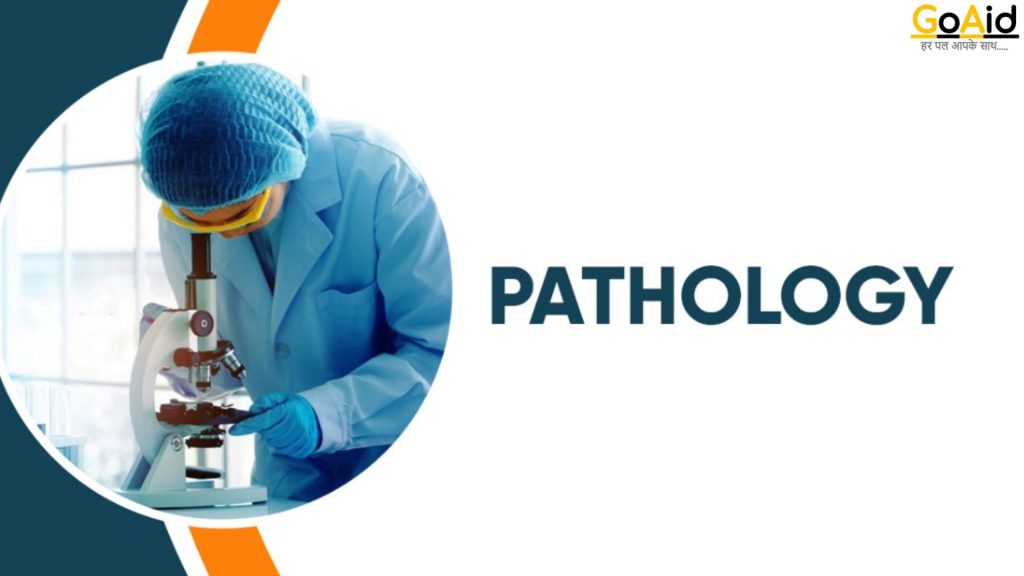
Brief Description of this Hospital Department
Pathology involves the study and diagnosis of diseases through the examination of body tissues and fluids. It plays a crucial role in diagnosing illnesses and guiding treatment decisions.
Issues Covered Under this Hospital Department
These are the major issues covered under this or similar kinds of Hospital Departments:
- Cancer Diagnosis
- Infectious diseases
- Hematological disorders
- Autoimmune diseases
- Tissue abnormalities
Specified Doctors Under this Hospital Department
The names of the Specified Doctors under this or similar kinds of Hospital Departments are based on their duties and specified work. These are the possible names of the doctors in this hospital department:
- Pathologists
- Cytopathologists
- Hematopathologists
- Forensic Pathologists
- Molecular Pathologists
Functions of the Pathology Department of the Hospital
These are the key functions of this or similar kinds of hospital departments:
- Analyze body tissues and fluids for disease diagnosis.
- Perform autopsies to determine the cause of death.
- Conduct laboratory tests for various medical conditions.
- Provide histopathology and cytopathology services.
- Support cancer diagnosis and staging.
- Offer blood banking and transfusion services.
- Conduct molecular and genetic testing.
- Ensure accurate and timely diagnostic results.
Benefits to the Patients under this Hospital Department
These are the key benefits that you can get under this hospital Department:
- Precise disease diagnosis
- Identification of infection sources
- Cancer staging
- Genetic testing
- Autopsy services
- Guidance for targeted therapies
10. General Surgery
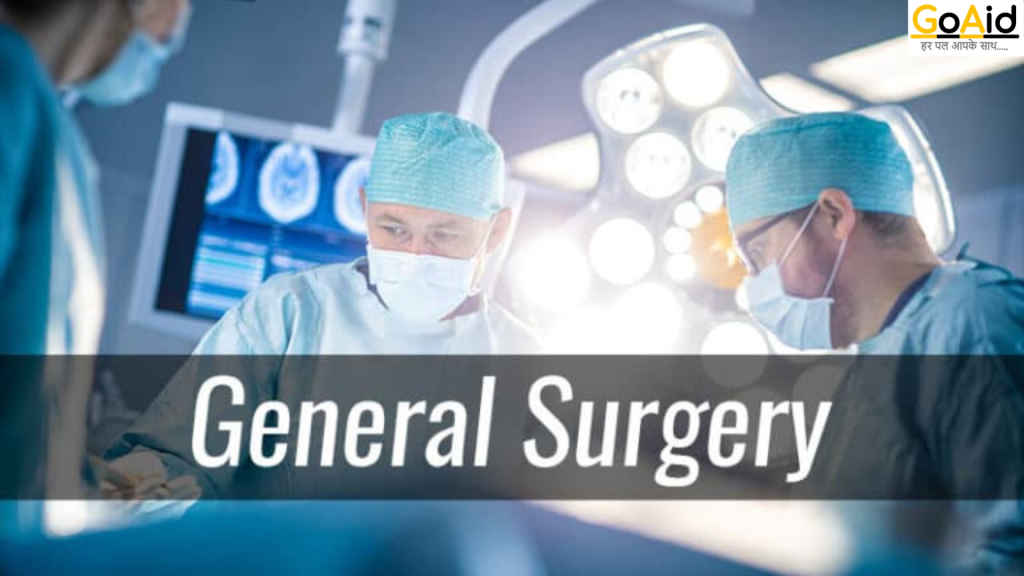
Brief Description of this Hospital Department
General Surgery covers a wide range of surgical procedures for various conditions. Surgeons in this department perform operations involving the abdomen, breast, skin, and soft tissues.
Issues Covered Under this Hospital Department
These are the major issues covered under this or similar kinds of Hospital Departments:
- Appendicitis
- Hernias
- Gallbladder disease
- Bowel obstructions
- Breast lumps
Specified Doctors Under this Hospital Department
The names of the Specified Doctors under this or similar kinds of Hospital Departments are based on their duties and specified work. These are the possible names of the doctors in this hospital department:
- General Surgeons
- Colorectal Surgeons
- Laparoscopic Surgeons
- Trauma Surgeons
- Surgical Oncologists
Functions of the General Surgery Department of the Hospital
These are the key functions of this or similar kinds of hospital departments:
- Perform surgical procedures on the abdomen, breast, skin, and soft tissues.
- Provide preoperative and postoperative care.
- Manage surgical emergencies (e.g., appendicitis, bowel obstructions).
- Conduct minimally invasive surgeries (e.g., laparoscopic procedures).
- Perform cancer-related surgeries.
- Manage surgical complications and infections.
- Collaborate with other departments for comprehensive care.
- Educate patients on surgical procedures and recovery.
Benefits to the Patients under this Hospital Department
These are the key benefits that you can get under this hospital Department:
- Broad surgical expertise
- Minimally invasive techniques
- Emergency surgical care
- Post-operative care
- Management of surgical complications
- Pre-operative consultations
11. Urology
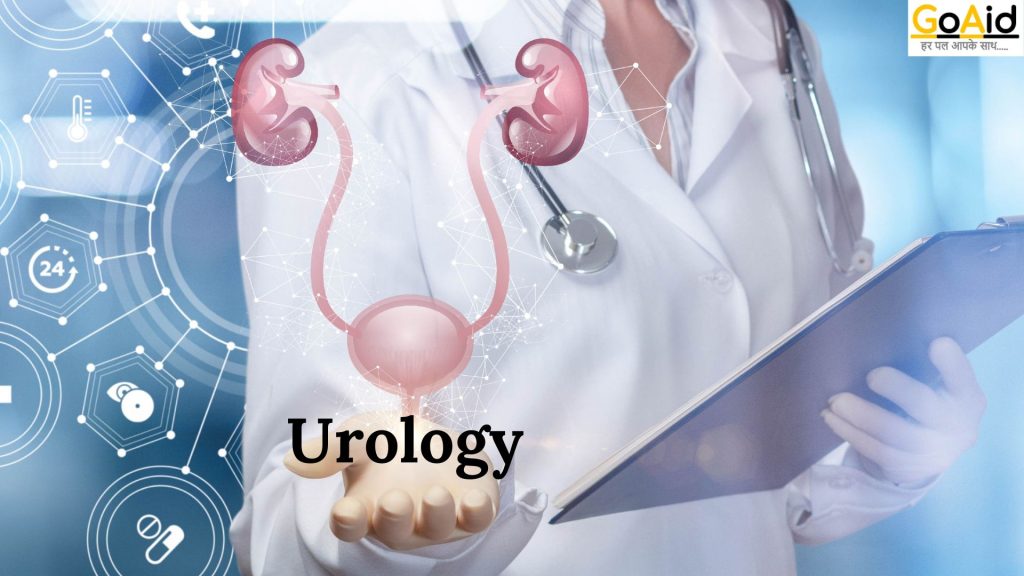
Brief Description of this Hospital Department
Urology focuses on diagnosing and treating urinary tract and male reproductive system conditions. It includes medical and surgical interventions for a variety of urological issues.
Issues Covered Under this Hospital Department
These are the major issues covered under this or similar kinds of Hospital Departments:
- Kidney stones
- Prostate conditions
- Bladder disorders
- Urinary tract infections
- Male infertility
Specified Doctors Under this Hospital Department
The names of the Specified Doctors under this or similar kinds of Hospital Departments are based on their duties and specified work. These are the possible names of the doctors in this hospital department:
- Urologists
- Pediatric Urologists
- Urogynecologists
- Urologic Oncologists
- Andrologists
Functions of the Urology Department of the Hospital
These are the key functions of this or similar kinds of hospital departments:
- Diagnose and treat urinary tract and male reproductive system conditions.
- Perform urological surgeries (e.g., prostate surgery).
- Manage kidney stones and urinary tract infections.
- Offer male infertility treatments.
- Provide bladder and pelvic floor disorder management.
- Conduct urodynamic testing and diagnostic procedures.
- Manage chronic urological conditions.
- Educate patients on urological health and preventive care.
Benefits to the Patients under this Hospital Department
These are the key benefits that you can get under this hospital Department:
- Comprehensive urological care
- Minimally invasive surgeries
- Advanced diagnostic testing
- Management of chronic conditions
- Male reproductive health services
- Post-surgical follow-up
12. Dermatology

Brief Description of this Hospital Department
Dermatology focuses on the diagnosis and treatment of skin, hair, and nail conditions. It provides medical, surgical, and cosmetic treatments for a wide range of dermatological issues.
Issues Covered Under this Hospital Department
These are the major issues covered under this or similar kinds of Hospital Departments:
- Acne
- Psoriasis
- Skin cancer
- Eczema
- Hair loss
Specified Doctors Under this Hospital Department
The names of the Specified Doctors under this or similar kinds of Hospital Departments are based on their duties and specified work. These are the possible names of the doctors in this hospital department:
- Dermatologists
- Dermatopathologists
- Pediatric Dermatologists
- Cosmetic Dermatologists
- Mohs Surgeons
Functions of Dermatology Department of Hospital
These are the key functions of this or similar kinds of hospital departments:
- Diagnose and treat skin, hair, and nail conditions.
- Perform skin cancer screenings and treatments.
- Offer cosmetic dermatology procedures.
- Manage chronic skin conditions (e.g., psoriasis, eczema).
- Provide allergy testing and treatment.
- Conduct dermatologic surgery (e.g., Mohs surgery).
- Offer acne treatment and scar management.
- Educate patients on skincare and sun protection.
Benefits to the Patients under this Hospital Department
These are the key benefits that you can get under this hospital Department:
- Early skin cancer detection
- Treatment of chronic skin conditions
- Cosmetic skin treatments
- Management of hair and nail disorders
- Preventive skincare
- Allergy testing and treatment
13. Gastroenterology
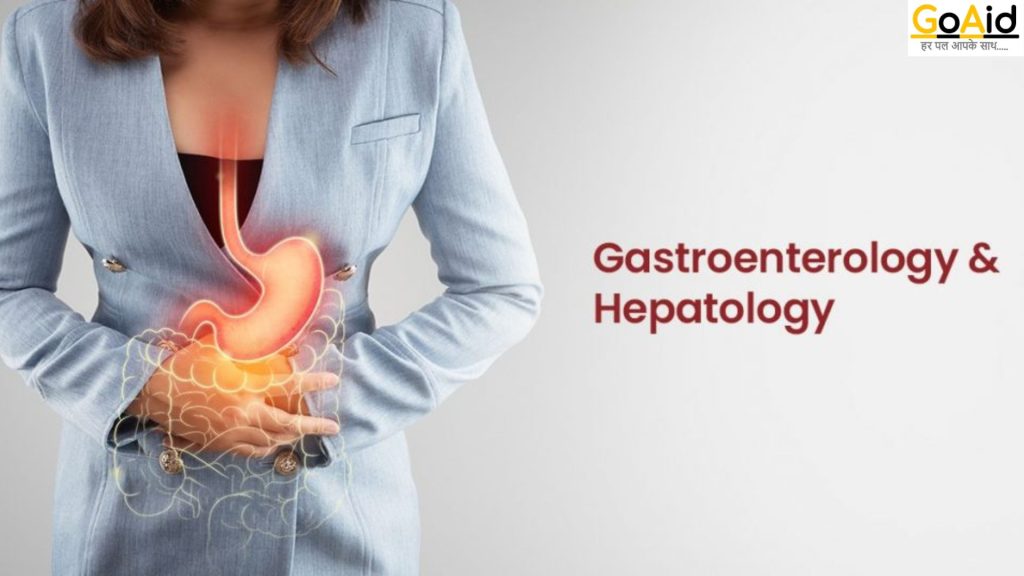
Brief Description of this Hospital Department
Gastroenterology deals with the diagnosis and treatment of digestive system disorders. It includes conditions affecting the esophagus, stomach, intestines, liver, and pancreas.
Issues Covered Under this Hospital Department
These are the major issues covered under this or similar kinds of Hospital Departments:
- Acid reflux
- Irritable bowel syndrome
- Inflammatory bowel disease
- Hepatitis
- Pancreatitis
Specified Doctors Under this Hospital Department
The names of the Specified Doctors under this or similar kinds of Hospital Departments are based on their duties and specified work. These are the possible names of the doctors in this hospital department:
- Gastroenterologists
- Hepatologists
- Colorectal Surgeons
- Pediatric Gastroenterologists
- Endoscopists
Functions of the Gastroenterology Department of the Hospital
These are the key functions of this or similar kinds of hospital departments:
- Diagnose and treat digestive system disorders.
- Perform endoscopic procedures (e.g., colonoscopy, endoscopy).
- Manage chronic gastrointestinal conditions (e.g., IBS, IBD).
- Offer nutritional counseling and support.
- Provide liver disease management.
- Conduct gastrointestinal cancer screenings.
- Treat acute GI conditions (e.g., pancreatitis, acid reflux).
- Educate patients on digestive health and diet.
Benefits to the Patients under this Hospital Department
These are the key benefits that you can get under this hospital Department:
- Comprehensive digestive care
- Endoscopic procedures
- Nutritional counseling
- Management of chronic GI conditions
- Early cancer detection
- Liver disease management
14. Nephrology
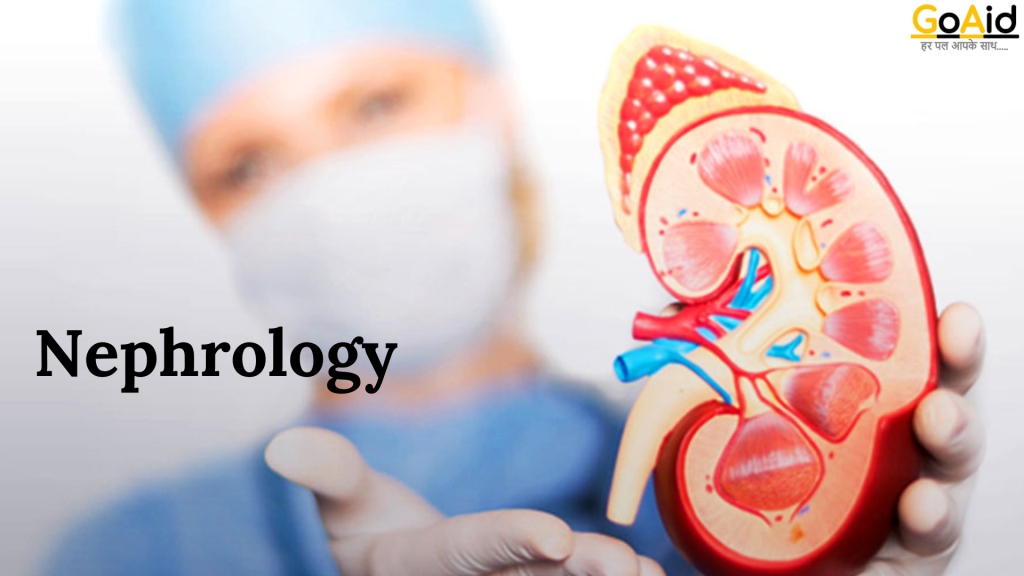
Brief Description of this Hospital Department:
Nephrology focuses on the diagnosis and treatment of kidney-related conditions. It includes medical management of kidney diseases and care for patients with renal failure.
Issues Covered Under this Hospital Department
These are the major issues covered under this or similar kinds of Hospital Departments:
- Chronic kidney disease
- Acute kidney injury
- Hypertension
- Kidney stones
- Dialysis
Specified Doctors Under this Hospital Department
The names of the Specified Doctors under this or similar kinds of Hospital Departments are based on their duties and specified work. These are the possible names of the doctors in this hospital department:
- Nephrologists
- Transplant Surgeons
- Pediatric Nephrologists
- Interventional Nephrologists
- Hypertension Specialists
Functions of the Nephrology Department of the Hospital
These are the key functions of this or similar kinds of hospital departments:
- Diagnose and treat kidney-related conditions.
- Manage chronic kidney disease and acute kidney injury.
- Provide dialysis services.
- Offer kidney transplant care and coordination.
- Conduct hypertension management and treatment.
- Perform kidney biopsies and diagnostic testing.
- Provide nutritional and lifestyle counseling for kidney health.
- Educate patients on preventing kidney disease progression.
Benefits to the Patients under this Hospital Department
These are the key benefits that you can get under this hospital Department:
- Dialysis services
- Kidney transplant care
- Management of chronic kidney conditions
- Blood pressure control
- Nutritional support
- Prevention of kidney disease progression
15. Pulmonology
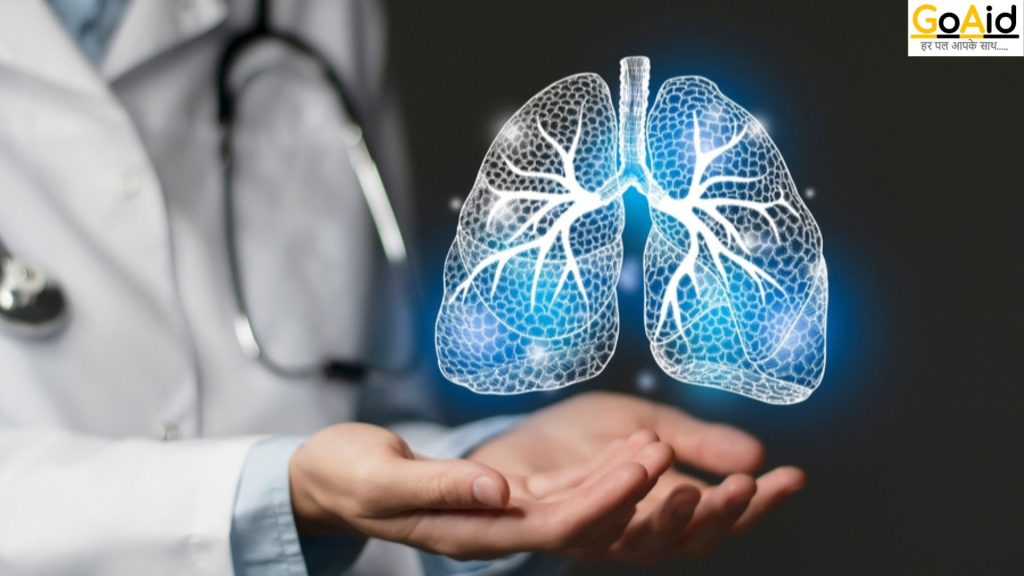
Brief Description of this Hospital Department:
Pulmonology specializes in the diagnosis and treatment of lung and respiratory tract disorders. It provides both medical and surgical care for a range of pulmonary conditions.
Issues Covered Under this Hospital Department
These are the major issues covered under this or similar kinds of Hospital Departments:
- Asthma
- Chronic obstructive pulmonary disease (COPD)
- Pneumonia
- Lung cancer
- Sleep apnea
Specified Doctors Under this Hospital Department
The names of the Specified Doctors under this or similar kinds of Hospital Departments are based on their duties and specified work. These are the possible names of the doctors in this hospital department:
- Pulmonologists
- Thoracic Surgeons
- Respiratory Therapists
- Sleep Medicine Specialists
- Critical Care Physicians
Functions of the Pulmonology Department of Hospital
These are the key functions of this or similar kinds of hospital departments:
- Diagnose and treat lung and respiratory tract disorders.
- Conduct pulmonary function tests and sleep studies.
- Manage chronic lung conditions (e.g., asthma, COPD).
- Provide interventional pulmonology procedures.
- Offer smoking cessation programs.
- Perform lung cancer screenings and treatments.
- Manage respiratory infections and acute lung conditions.
- Educate patients on respiratory health and prevention.
Benefits to the Patients under this Hospital Department
These are the key benefits that you can get under this hospital Department:
- Comprehensive respiratory care
- Pulmonary function testing
- Management of chronic lung conditions
- Sleep studies
- Smoking cessation programs
- Lung cancer screening
16. Psychiatry
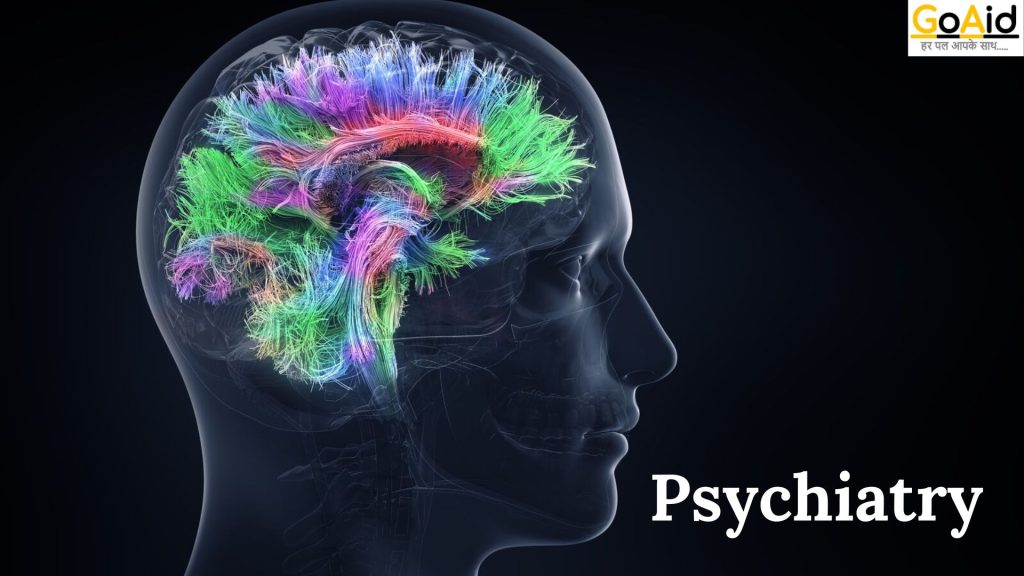
Brief Description of this Hospital Department
Psychiatry deals with the diagnosis, treatment, and prevention of mental health disorders. It encompasses a range of therapies, including medication management, counseling, and psychotherapy.
Issues Covered Under this Hospital Department
These are the major issues covered under this or similar kinds of Hospital Departments:
- Depression
- Anxiety disorders
- Schizophrenia
- Bipolar disorder
- Substance abuse
Specified Doctors Under this Hospital Department
The names of the Specified Doctors under this or similar kinds of Hospital Departments are based on their duties and specified work. These are the possible names of the doctors in this hospital department:
- Psychiatrists
- Child and Adolescent Psychiatrists
- Forensic Psychiatrists
- Psychologists
- Psychiatric Nurses
Functions of Psychiatry Department of Hospital
These are the key functions of this or similar kinds of hospital departments:
- Diagnose and treat mental health disorders.
- Provide psychotherapy and counseling services.
- Manage medication for psychiatric conditions.
- Offer crisis intervention and emergency mental health care.
- Conduct mental health assessments and screenings.
- Provide support groups and therapy sessions.
- Manage substance abuse and addiction treatment.
- Educate patients and families on mental health and well-being.
Benefits to the Patients under this Hospital Department
These are the key benefits that you can get under this hospital Department:
- Comprehensive mental health care
- Medication management
- Psychotherapy
- Crisis intervention
- Support groups
- Long-term mental health management
17. Endocrinology
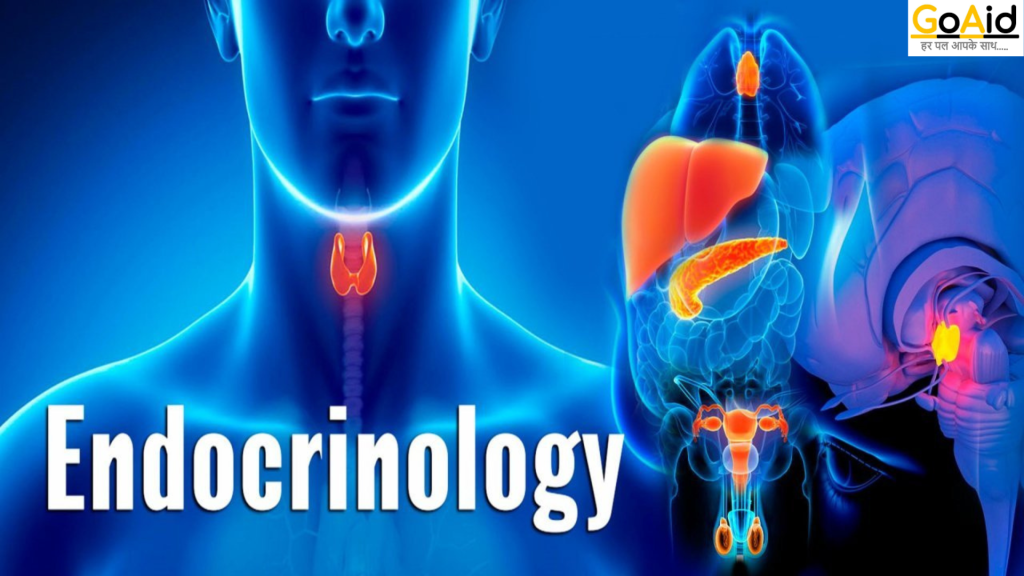
Brief Description of this Hospital Department
Endocrinology focuses on the diagnosis and treatment of hormonal and metabolic disorders. It includes conditions related to the endocrine glands, such as the thyroid, pancreas, and adrenal glands.
Issues Covered Under this Hospital Department
These are the major issues covered under this or similar kinds of Hospital Departments:
- Diabetes
- Thyroid disorders
- Osteoporosis
- Adrenal insufficiency
- Pituitary disorders
Specified Doctors Under this Hospital Department
The names of the Specified Doctors under this or similar kinds of Hospital Departments are based on their duties and specified work. These are the possible names of the doctors in this hospital department:
- Endocrinologists
- Diabetologists
- Pediatric Endocrinologists
- Reproductive Endocrinologists
- Thyroid Specialists
Functions of the Endocrinology Department of the Hospital
These are the key functions of this or similar kinds of hospital departments:
- Diagnose and treat hormonal and metabolic disorders.
- Manage diabetes and related complications.
- Provide thyroid disorder diagnosis and treatment.
- Conduct bone density testing and osteoporosis management.
- Offer hormone replacement therapy.
- Manage adrenal and pituitary gland disorders.
- Provide nutritional and lifestyle counseling.
- Educate patients on endocrine health and disease prevention.
Benefits to the Patients under this Hospital Department
These are the key benefits that you can get under this hospital Department:
- Hormone level testing
- Diabetes management
- Bone density testing
- Hormone replacement therapy
- Nutritional counseling
- Management of metabolic disorders
18. Rheumatology

Brief Description of this Hospital Department
Rheumatology deals with the diagnosis and treatment of autoimmune and inflammatory diseases that affect the joints, muscles, and bones. It focuses on conditions causing chronic pain and disability.
Issues Covered Under this Hospital Department
These are the major issues covered under this or similar kinds of Hospital Departments:
- Rheumatoid arthritis
- Lupus
- Osteoarthritis
- Gout
- Sj├Čgren’s syndrome
Specified Doctors Under this Hospital Department
The names of the Specified Doctors under this or similar kinds of Hospital Departments are based on their duties and specified work. These are the possible names of the doctors in this hospital department:
- Rheumatologists
- Immunologists
- Pediatric Rheumatologists
- Physical Therapists
- Pain Management Specialists
Functions of the Rheumatology Department of Hospital
These are the key functions of this or similar kinds of hospital departments:
- Diagnose and treat autoimmune and inflammatory diseases.
- Manage chronic pain and joint disorders.
- Provide immunotherapy and biologic treatments.
- Offer joint injections and pain management procedures.
- Conduct physical therapy and rehabilitation services.
- Manage chronic conditions like rheumatoid arthritis and lupus.
- Provide patient education and support for self-management.
- Conduct research and clinical trials in rheumatology.
Benefits to the Patients under this Hospital Department
These are the key benefits that you can possibly get under this hospital Department:
- Chronic pain management
- Joint injections
- Immunotherapy
- Physical therapy
- Disease-modifying treatments
- Long-term disease management
19. Anesthesiology
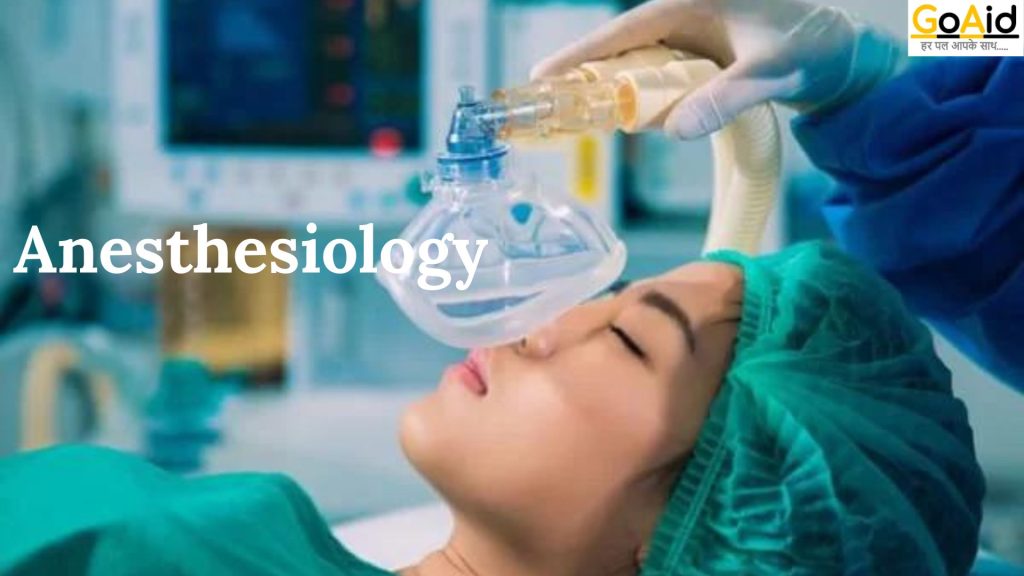
Brief Description of this Hospital Department
Anesthesiology focuses on pain management and the administration of anesthesia during surgeries and procedures. It ensures patient comfort and safety throughout the perioperative period.
Issues Covered Under this Hospital Department
These are the major issues covered under this or similar kinds of Hospital Departments:
- Preoperative assessment
- General anesthesia
- Regional anesthesia
- Pain management
- Critical care support
Specified Doctors Under this Hospital Department
The names of the Specified Doctors under this or similar kinds of Hospital Departments are based on their duties and specified work. These are the possible names of the doctors in this hospital department:
- Anesthesiologists
- Pain Management Specialists
- Nurse Anesthetists
- Pediatric Anesthesiologists
- Critical Care Anesthesiologists
Functions of the Anesthesiology Department of the Hospital
These are the key functions of this or similar kinds of hospital departments:
- Administer anesthesia for surgical and medical procedures.
- Manage pain during and after surgery.
- Provide preoperative evaluations and risk assessments.
- Offer critical care support during surgeries.
- Conduct regional and general anesthesia procedures.
- Manage chronic pain through various interventions.
- Provide anesthesia for labor and delivery.
- Ensure patient safety and comfort during procedures.
Benefits to the Patients under this Hospital Department
These are the key benefits that you can get under this hospital Department:
Safe anesthesia administration
Pain control
Preoperative evaluations
Critical care during surgery
Postoperative recovery support
Management of chronic pain
20. Intensive Care Unit (ICU)
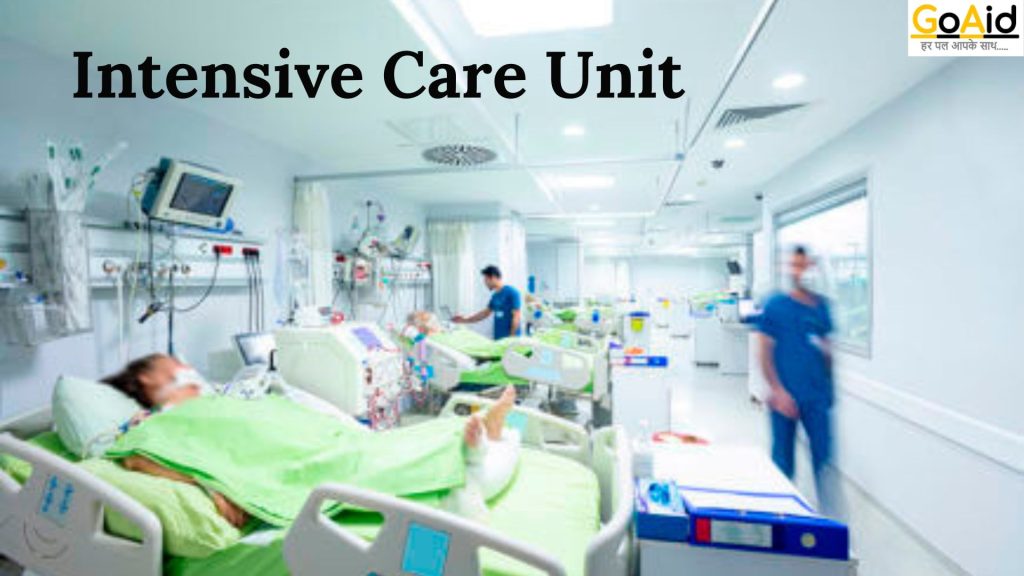
Brief Description of this Hospital Department
The Intensive Care Unit (ICU) provides critical care for severely ill or injured patients. It offers advanced monitoring and life support for those with life-threatening conditions.
Issues Covered Under this Hospital Department
These are the major issues covered under this or similar kinds of Hospital Departments:
- Severe infections
- Organ failure
- Post-surgical complications
- Trauma
- Respiratory failure
Specified Doctors Under this Hospital Department
The names of the Specified Doctors under this or similar kinds of Hospital Departments are based on their duties and specified work. These are the possible names of the doctors in this hospital department:
- Intensivists
- Critical Care Nurses
- Respiratory Therapists
- Infectious Disease Specialists
- Surgeons
Functions of Intensive Care Unit (ICU) Department of Hospital
These are the key functions of this or similar kinds of hospital departments:
- Provide advanced life support for critically ill patients.
- Offer continuous monitoring and intensive nursing care.
- Manage severe infections and organ failure.
- Provide respiratory support and mechanical ventilation.
- Coordinate multidisciplinary care for complex cases.
- Conduct early intervention for critical conditions.
- Manage post-surgical complications and recovery.
- Offer rehabilitation and support for post-ICU patients.
Benefits to the Patients under this Hospital Department
These are the key benefits that you can possibly get under this hospital Department:
- Advanced life support
- Continuous monitoring
- Multidisciplinary care
- Specialized nursing care
- Early intervention for complications
- Post-ICU rehabilitation
Read More: 7 Most Common Diseases in Summer | Symptoms, Causes, Treatment / Cure ŌĆō A Complete Guide
21. Infectious Diseases
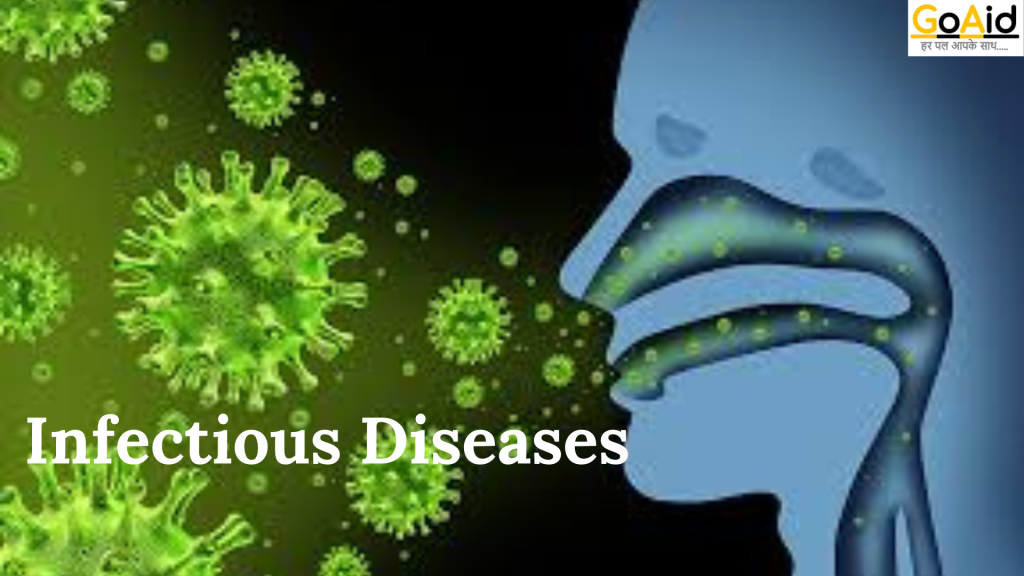
Brief Description of this Hospital Department
The Infectious Diseases department specializes in the diagnosis and treatment of infections caused by bacteria, viruses, fungi, and parasites. It focuses on preventing the spread of contagious diseases.
Issues Covered Under this Hospital Department
These are the major issues covered under this or similar kinds of Hospital Departments:
- HIV/AIDS
- Tuberculosis
- Hepatitis
- COVID-19
- MRSA infections
Specified Doctors Under this Hospital Department
The names of the Specified Doctors under this or similar kinds of Hospital Departments are based on their duties and specified work. These are the possible names of the doctors in this hospital department:
- Infectious Disease Specialists
- Epidemiologists
- Microbiologists
- Travel Medicine Specialists
- Immunologists
Functions of the Infectious Diseases Department of the Hospital
These are the key functions of this or similar kinds of hospital departments:
- Diagnose and treat infectious diseases.
- Provide antibiotic and antiviral therapy.
- Conduct disease prevention and vaccination programs.
- Manage outbreak control and infection prevention.
- Offer travel health consultations and vaccinations.
- Research infectious diseases.
- Provide care for chronic infections like HIV/AIDS and tuberculosis.
- Educate patients on infection prevention and control.
Benefits to the Patients under this Hospital Department
These are the key benefits that you can possibly get under this hospital Department:
- Accurate infection diagnosis
- Antibiotic therapy
- Disease prevention
- Vaccination programs
- Outbreak management
- Travel health consultations
22. Ophthalmology
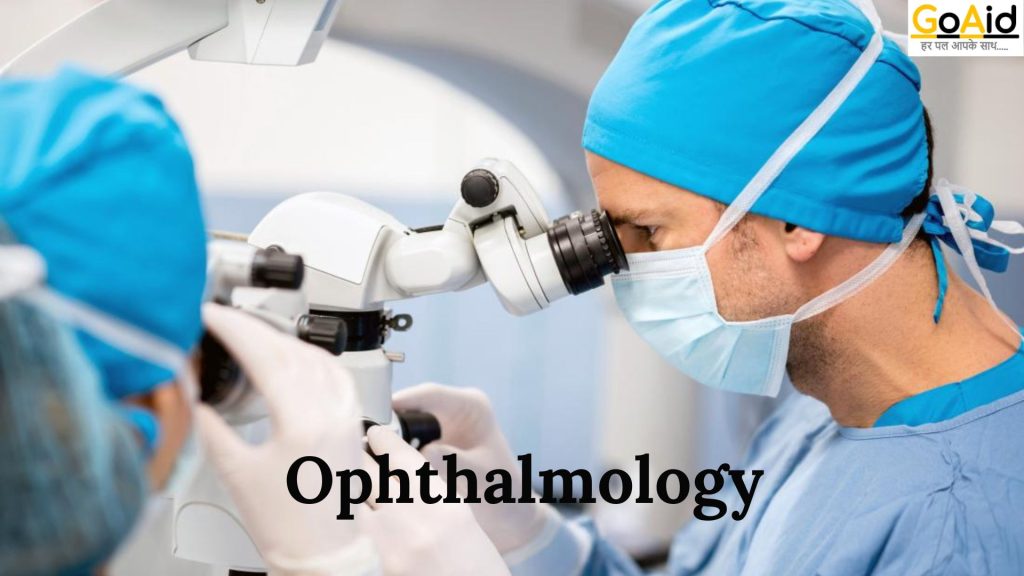
Brief Description of this Hospital Department
Ophthalmology focuses on the diagnosis and treatment of eye conditions and vision disorders. It includes medical and surgical interventions to preserve and improve vision.
Issues Covered Under this Hospital Department
These are the major issues covered under this or similar kinds of Hospital Departments:
- Cataracts
- Glaucoma
- Macular degeneration
- Diabetic retinopathy
- Refractive errors
Specified Doctors Under this Hospital Department
The names of the Specified Doctors under this or similar kinds of Hospital Departments are based on their duties and specified work. These are the possible names of the doctors in this hospital department:
- Ophthalmologists
- Optometrists
- Retinal Specialists
- Pediatric Ophthalmologists
- Oculoplastic Surgeons
Functions of the Ophthalmology Department of the Hospital
These are the key functions of this or similar kinds of hospital departments:
- Diagnose and treat eye conditions and vision disorders.
- Perform surgical interventions (e.g., cataract surgery).
- Provide comprehensive eye exams and vision correction.
- Manage chronic eye diseases (e.g., glaucoma, macular degeneration).
- Offer low vision services and aids.
- Conduct preventive eye care and screenings.
- Provide pediatric ophthalmology services.
- Educate patients on eye health and protection.
Benefits to the Patients under this Hospital Department
These are the key benefits that you can get under this hospital Department:
- Comprehensive eye exams
- Surgical eye care
- Vision correction
- Early detection of eye diseases
- Low vision services
- Preventive eye care
23. ENT (Otorhinolaryngology)
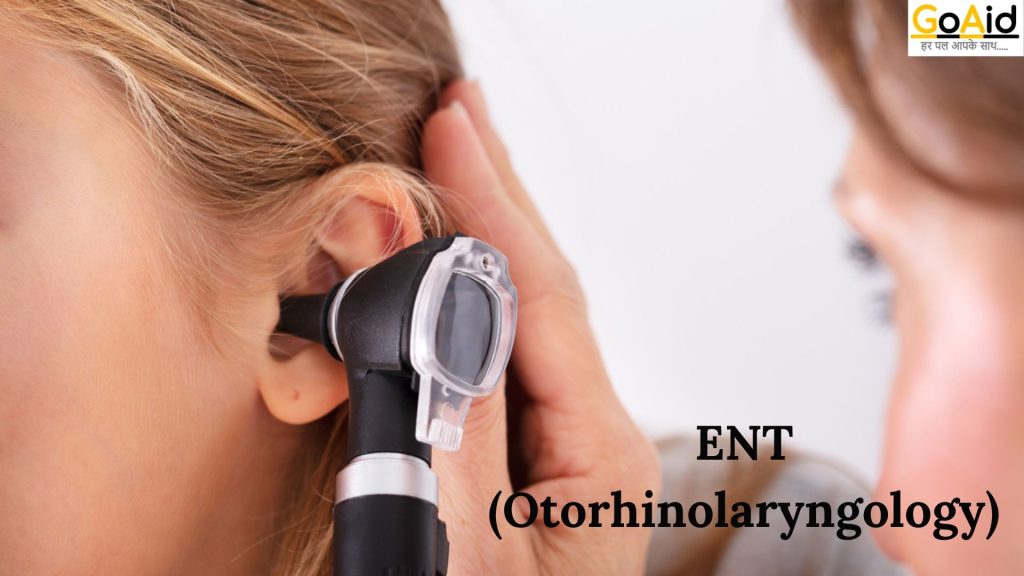
Brief Description of this Hospital Department
ENT (Otorhinolaryngology) focuses on the diagnosis and treatment of ear, nose, and throat conditions. It includes medical and surgical care for related structures of the head and neck.
Issues Covered Under this Hospital Department
These are the major issues covered under this or similar kinds of Hospital Departments:
- Hearing loss
- Sinusitis
- Tonsillitis
- Voice disorders
- Sleep apnea
Specified Doctors Under this Hospital Department
The names of the Specified Doctors under this or similar kinds of Hospital Departments are based on their duties and specified work. These are the possible names of the doctors in this hospital department:
- ENT Specialists
- Audiologists
- Head and Neck Surgeons
- Pediatric ENT Specialists
- Speech Pathologists
Functions of ENT (Otorhinolaryngology) Department of Hospital
These are the key functions of this or similar kinds of hospital departments:
- Diagnose and treat ear, nose, and throat conditions.
- Perform ENT surgeries (e.g., tonsillectomy, sinus surgery).
- Manage hearing loss and balance disorders.
- Provide voice and speech therapy.
- Treat sleep apnea and snoring.
- Offer allergy testing and treatment.
- Conduct head and neck cancer screenings and treatments.
- Educate patients on ENT health and preventive care.
Benefits to the Patients under this Hospital Department
These are the key benefits that you can get under this hospital Department:
- Hearing assessments
- Sinus surgery
- Treatment of throat disorders
- Voice therapy
- Sleep studies
- Head and neck cancer care
24. Hematology
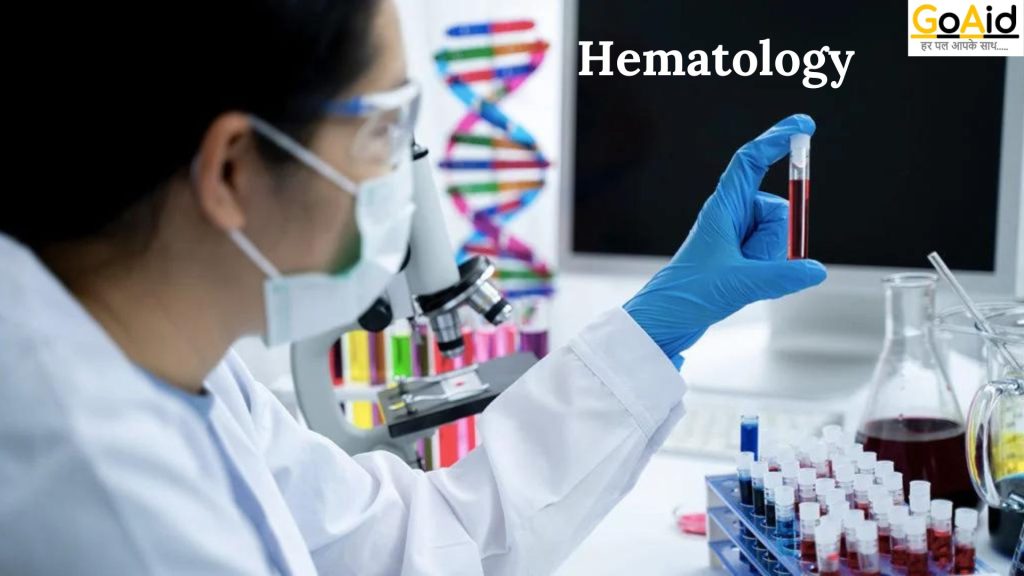
Brief Description of this Hospital Department
Hematology focuses on the diagnosis and treatment of blood disorders. It includes conditions affecting the blood, bone marrow, and lymphatic system.
Issues Covered Under this Hospital Department
These are the major issues covered under this or similar kinds of Hospital Departments:
- Anemia
- Leukemia
- Lymphoma
- Hemophilia
- Thrombosis
Specified Doctors Under this Hospital Department
The names of the Specified Doctors under this or similar kinds of Hospital Departments are based on their duties and specified work. These are the possible names of the doctors in this hospital department:
- Hematologists
- Oncologists
- Transfusion Medicine Specialists
- Pediatric Hematologists
- Bone Marrow Transplant Specialists
Functions of the Hematology Department of the Hospital
These are the key functions of this or similar kinds of hospital departments:
- Diagnose and treat blood disorders.
- Provide chemotherapy for hematologic cancers.
- Conduct blood transfusions and bone marrow transplants.
- Offer coagulation testing and management.
- Manage chronic blood conditions like anemia and hemophilia.
- Conduct hematologic research and clinical trials.
- Provide patient education on blood health and disease management.
- Collaborate with other departments for comprehensive care.
Benefits to the Patients under this Hospital Department
These are the key benefits that you can get under this hospital Department:
- Blood disorder diagnosis
- Chemotherapy
- Blood transfusions
- Bone marrow transplants
- Coagulation testing
- Management of chronic blood conditions
25. Physical Medicine and Rehabilitation

Brief Description of this Hospital Department:
Physical Medicine and Rehabilitation (PM&R) focuses on restoring function and quality of life for patients with physical impairments or disabilities. It includes a variety of therapies to aid recovery.
Issues Covered Under this Hospital Department:
These are the major issues covered under this or similar kinds of Hospital Departments:
- Spinal cord injuries
- Traumatic brain injuries
- Stroke rehabilitation
- Musculoskeletal pain
- Sports injuries
Specified Doctors Under this Hospital Department
The names of the Specified Doctors under this or similar kinds of Hospital Departments are based on their duties and specified work. These are the possible names of the doctors in this hospital department:
- Physiatrists
- Physical Therapists
- Occupational Therapists
- Speech Therapists
- Rehabilitation Nurses
Functions of Physical Medicine and Rehabilitation Department of Hospital
These are the key functions of this or similar kinds of hospital departments:
- Provide rehabilitation for physical impairments and disabilities.
- Manage pain and improve functional abilities.
- Offer physical, occupational, and speech therapy.
- Conduct mobility restoration and strength conditioning programs.
- Provide adaptive equipment training and support.
- Develop personalized rehabilitation plans.
- Offer sports injury prevention and management.
- Educate patients on long-term recovery and health maintenance.
Benefits to the Patients under this Hospital Department
These are the key benefits that you can get under this hospital Department:
- Comprehensive rehabilitation services
- Pain management
- Mobility restoration
- Strength and conditioning
- Adaptive equipment training
- Long-term recovery support
Conclusion
In conclusion, this comprehensive list provides detailed insights into the major hospital departments, highlighting their specialized duties, covered issues, key medical professionals, and patient benefits. Understanding the distinct roles of each department helps in recognizing the breadth of medical services available in modern healthcare facilities.
Whether itŌĆÖs emergency care, specialized treatments, or chronic disease management, each department plays a crucial role in ensuring holistic patient care. We have thoroughly detailed each department to aid your understanding. Should you have any queries or require further information, please feel free to ask in the comment box.
Book Ambulance Sevice – GoAid Ambulance Service
Frequently Asked Questions about Hospital Departments
┬ĀA Hospital Department is a specialized unit within a healthcare facility dedicated to providing focused medical care and services, each equipped with specific resources, staff, and technology to address particular health needs.
The number of Hospital Departments in a hospital can vary, but a comprehensive hospital department list generally includes around 20-25 major departments, each specializing in different areas of medical care.
Knowing the Hospital Departments list is crucial for understanding the specialized services available, facilitating better navigation of the healthcare system, and ensuring patients seek the appropriate care for their specific medical conditions.
The Emergency Department handles acute illnesses and injuries, such as heart attacks, strokes, severe injuries, respiratory distress, acute infections, and trauma.
The Cardiology Department specializes in the diagnosis and treatment of heart and vascular conditions, including coronary artery disease, heart failure, arrhythmias, hypertension, and valve disorders.
The Radiology Department provides essential imaging services that assist other Hospital Departments in diagnosing and treating various medical conditions through advanced technology like X-rays, MRI, CT scans, and ultrasound.
The Oncology Department offers personalized cancer treatment plans, access to clinical trials, multimodal therapy options, supportive care services, palliative care, and long-term follow-up care.
The Neurology Department is primarily staffed by Neurologists, Neurosurgeons, Neurophysiologists, Pediatric Neurologists, and Neuro-oncologists, all focusing on brain, spinal cord, and nervous system disorders.
The Pediatrics Department offers medical care for infants, children, and adolescents, including immunizations, treatment of common infections, growth and development monitoring, asthma management, and pediatric diabetes care.
For any queries regarding the Hospital Departments list, you are encouraged to ask in the comment box or consult the hospitalŌĆÖs information desk or website for further assistance.

